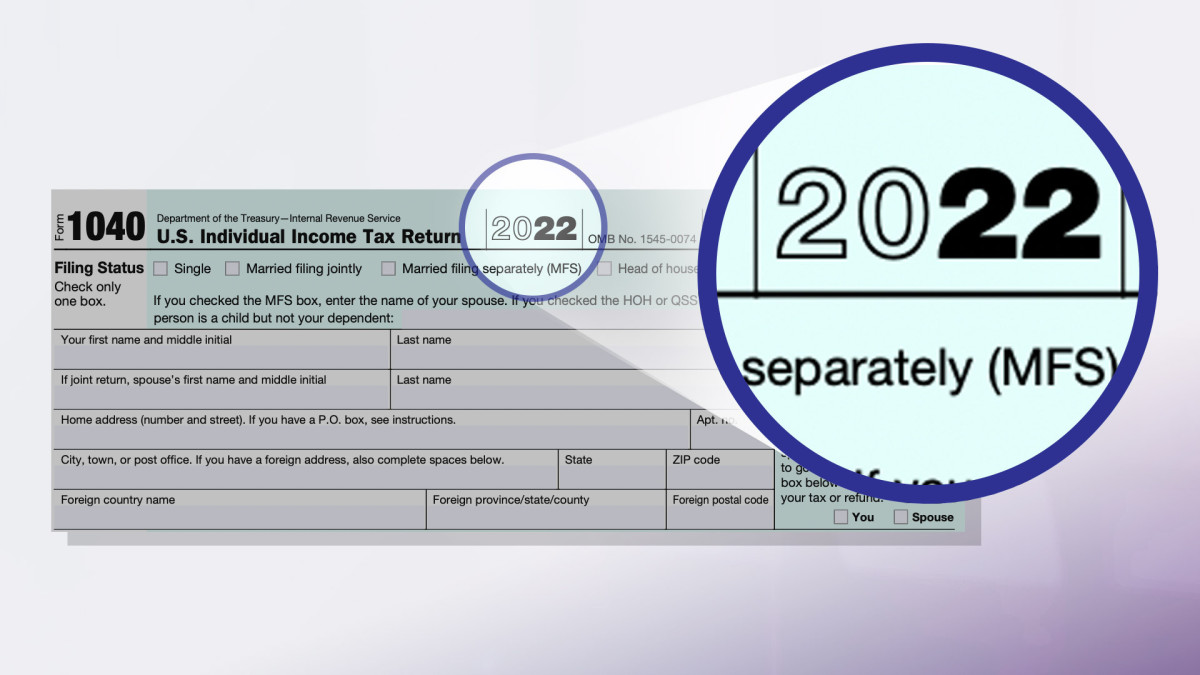
Each year, tax season fills many Americans with a mild sense of dread. Spare time for an extra financial task? In this economy? Who's got that?!
If you owe back taxes, you're not alone — in 2021, taxpayers in the U.S. failed to pay a whopping $688 million to the government.
Falling behind on a financial task can be anxiety-inducing. But as is often the case, sometimes the task itself isn't as scary as the shadow it casts. With a few simple forms, you can get through your back taxes and back to worrying about literally everything else.
Related: Why do I owe taxes beyond my paycheck withholdings?
The basics of back taxes
When a person owes back taxes, it simply means that they haven't paid their taxes from (a) previous year(s). Filing your back taxes is about as easy as filing your regular annual or quarterly taxes.
And just like filing regular taxes, you've got a few options for how to file. It's worth taking time to explore those options — what's best for you depends on what you owe, if you owe, and how much you're able to pay the IRS.
How to file back taxes
Filing your back taxes is very similar to filing your taxes for the current year. It's as simple as making sure you've got all your forms and making a few strategic choices.
First, get all your documents together
To start, you'll need your wage forms for the year(s) you plan to file back taxes. These are usually W2 forms or 1099s. If you're missing documents, you can request up to 10 years’ worth of past forms from the IRS.
You'll also need the actual tax forms you plan to fill out, called the 1040 form. The form changes each calendar year, so make sure you're using corresponding forms.
For example, I would use the information from my 2022 W2 form to fill out form 1040 (2022). If you're unsure, check the first line of your 1040 form — in the center of the page in large numbers, the form's year will be listed.

DIY, software, or in-person help?
Next, it's time to decide just how you'll file. If you're hoping for a return, you might be trying to go the do-it-yourself route. Help from a tax professional or tax software is a very valid choice, too.
How do you plan to file? Doing it yourself? Using software? Going into a tax professional's office? The more assistance you need, the more it will cost you — but there's something to be said for asking for professional help when you need it.
Peace of mind is, for many taxpayers, well worth the price.
Related: Tax deadline 2023: Don't miss the last day to pay your taxes!
Can a CPA negotiate my back taxes?
Yes! If you believe you're eligible for tax benefits you may not know about, a qualified tax professional can certainly help.
While it's unlikely they'll be able to negotiate your final debt, they'll be well-versed in all of your potential write-offs, tax credits, and payment options. A CPA can also help you figure out the best method for filing and paying your back taxes.
What are your payment options?
When it comes to saying goodbye to your hard-earned dollars, come to the table prepared. If you anticipate owing a large amount of money, ask yourself what you can afford to pay monthly to knock down your debt.
As for payment methods, the IRS will take your money in just about any format. Once you've filed your taxes, you'll be prompted to pay in any of the following ways:
- direct transfer from your bank account
- deductions from your paycheck
- electronic payments through the EFTPS (Electronic Federal Tax Payment System), the IRS's digital wallet service, and the IRS2Go mobile app
- via phone with a debit or credit card
- mail-in check or money order
- cash payments at retail partners including Dollar General, Family Dollar, CVS Pharmacy, Walgreens, Rite Aid, 7-Eleven, Walmart, Kroger, Circle K, and more.
Payment plan
The cost of back taxes can be painful — setting up a payment plan can "spread out the hurt," so to speak. Fortunately, the IRS is eager to get paid and thus willing to work with taxpayers.
Applying for a payment plan can be done online or by filling out and mailing Form 9465 to the IRS.
Should I file my back taxes all together or spread out filing?
When to file which years' back taxes varies case by case. Penalties and interest do still apply to your balance while you're paying off your debt. Sometimes penalties are worse when you wait — but affordable payments can prevent you from defaulting.
When gearing up to file back taxes, ask yourself how much money you've got budgeted to get right with the government. What are you able to pay upfront on the day you're filing? If you're planning to set up multiple payments, how much can you afford monthly?
Does the IRS forgive back taxes? How long before back taxes are forgiven?
After 10 years, taxes are considered uncollectible by the IRS. The Statute of Limitations on IRS collection goes into effect after that time.
If you're being audited, however, the IRS can file for an extension to the statute.
Related: What are itemized deductions? How do they work?
What happens if you don't file taxes?
For individuals whose paycheck withholdings cover their taxes, not filing means missing out on money. Delayed returns are a bummer, but they don't accrue any kind of penalty. But if left for too long, they disappear — after three years, you're no longer eligible to collect your refunds.
More likely, though, folks who don't file taxes owe the government money. Those taxes become back taxes, and if the IRS catches on, you could get audited.
Can you go to jail for not filing or paying taxes?
Yes, but don't panic. You're very unlikely to get arrested for unpaid back taxes. Jail time only occurs when criminal court proceedings result in a verdict saying you intentionally evaded paying taxes.
Most legal proceedings involving the IRS and taxpayers result in civil penalties instead of criminal. The bottom line is that the IRS is keen to get you to pay rather than lock you away for mistakes, forgetfulness, or late filing.
That's what penalties are for.
What happens if you file taxes late?
Late taxes are subject to a penalty. The penalty for Failure to File is 5% of the unpaid taxes for each late month up to 25% of your taxes due. If you have to file late, it's in your interest to file within one month of the due date — otherwise, it will cost you.







